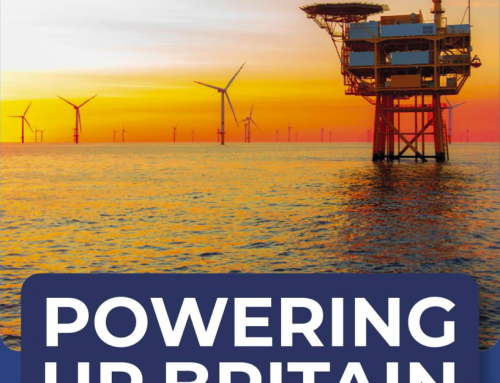By Stewart Dalby
Recently, before the sad death of our beloved Queen dominated the air waves, our new prime minister was seeking to set a new cap on energy prices to avoid household misery and business failure. Under the present set up the energy cap is set twice a year on the 1st of April and the 1st of October. Currently the average household bill still stands at £1971 because of the April cap. This is enough to cause fuel poverty for around 4 million homes.
Yet despite this, household bills have been set for a further rise of at least £3,500 (an 80 per increase) on 1st October. If this goes ahead it would mean much, more distress, huge hikes in fuel poverty as well difficulties getting through a brutal winter for at least 8 million households.

Liz Truss on her way to work
Strangely, at this crucial point in the narrative, the regulator Ofgem without giving any proper notice announced that the energy cap would go up every three months rather every six months This could portend that the cap would go up to £4,200 for every average three bedroomed home on 1st January 2023.
This would entail a great deal of more distress, huge hikes in fuel poverty as well other difficulties getting through a brutal winter at least 8 million households. So, it is more than reasonable to ask when this exponential rise in energy prices is going to end. Not soon it seems. Some ‘Think Tanks’ predict the cap could rise to £6000 in late 2023. This would portend households facing £500 monthly energy bills. This, in turn would likely result in just not just fuel poverty but general destitution.
To avoid all this chaos Liz Truss is seeking to set a new cap at £2,500 and freeze it for two years. Given that all households are already due to receive a one-off sum of £400 for relief. This bale out was set last May by Rishi Sunak long before Liz Truss said she would not go in for hand-outs. The £400 will be doled out in instalments of £67 monthly starting in October.
There could also be a reduction in VAT. So it looks like the frozen energy-cap-in-waiting will come in at around £2000. If this is the case it appears that the government will hope that households will be mollified by the thought that as their bills won’t be going up by too much too soon they won’t protest too much.
The trouble with all this is that allies of the Prime Minister have suggested that implementing this household package would cost at least £90 billion. But this does not include the business element. It is estimated that businesses, particularly pubs it seems, would need £40bn-£60bn to fund a relief package they have needed for so long. Thus, Liz Truss has started her premiership lumbered with a large chunk of debt possibly to the tune£150bn.
Some observers believe some monies will go straight to the energy suppliers. In particular, they will go the cartel of the “Big Six” energy suppliers; namely British Gas, EDF, E.On, Npower, Scottish Power and Ovo that dominate the retail gas market to the tune of 70 per cent. In theory, the idea in giving these monies is they will be used to compensate the suppliers for their loss of earnings, return them to profitability during the energy cap freeze and pay back the money they have received over time, so they can invest in helping consumers with their bills and improve customer/company relations.
In practice, they do no such thing. Cartels, like the one I have just written about have been around for a long time. The record shows that the companies, instead of investing the monies in improving performances, pay themselves fact salaries and push out push out really very generous dividends to share-holders. To illustrate how this practice works allow me to read out some data I received from a friend who has work in the energy supply industry for a long time.
My friend said the data he had received originated from the Bank of England.
This what he came up with:-
- British Gas made a profit of £1.3bn in the period from January to June 2022 it was said
- Chris Shea the CEO of Centrica which owns British Gas is alleged to receive a salary of £2 million a year.
- Scottish Power boss Keith Anderson is alleged to receive £1.15 per annum
- The boss of the National Grid is alleged to have received £6m in Bonuses
- On boss Lewis Miller gets £1m it is alleged
- Simone Rossi at EDF gets £1m but a further £4.5m is spread among other directors it is alleged.
The government might find it salutary reading to learn the energy companies seem unlikely to help reduce the debt they are incurring because of the relief package. On the contrary they seem likely to increase it. Liz Truss has yet to tell us how she is to recoup the £160bn. As a fervent tax-cutter she has dismissed the idea of a windfall tax on the North Sea fossil fuels and seems very unlikely to cut income tax. Perhaps she will set up a broad loan scheme that could be repaid over a long period.
Whatever she decides she has to face up to the fact that the country’s finances are in a parlous state. At the end of the 1st quarter 2022 the government’s gross debt was £2,365bn equivalent to 99 per cent of Gross Domestic Product (GDP). The £160bn might seem a drop in the ocean against these figures. But to the thinking of some of us every little bit helps when you are trying to raise funds. So, you energy supply companies bosses why don’t put you hands in your pockets and pay back what you have taken out. After all, a lot of people think you are profiteering.





